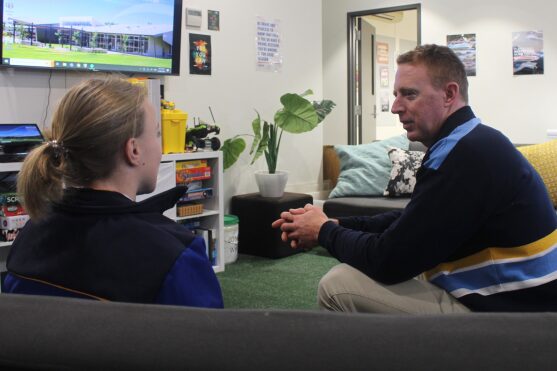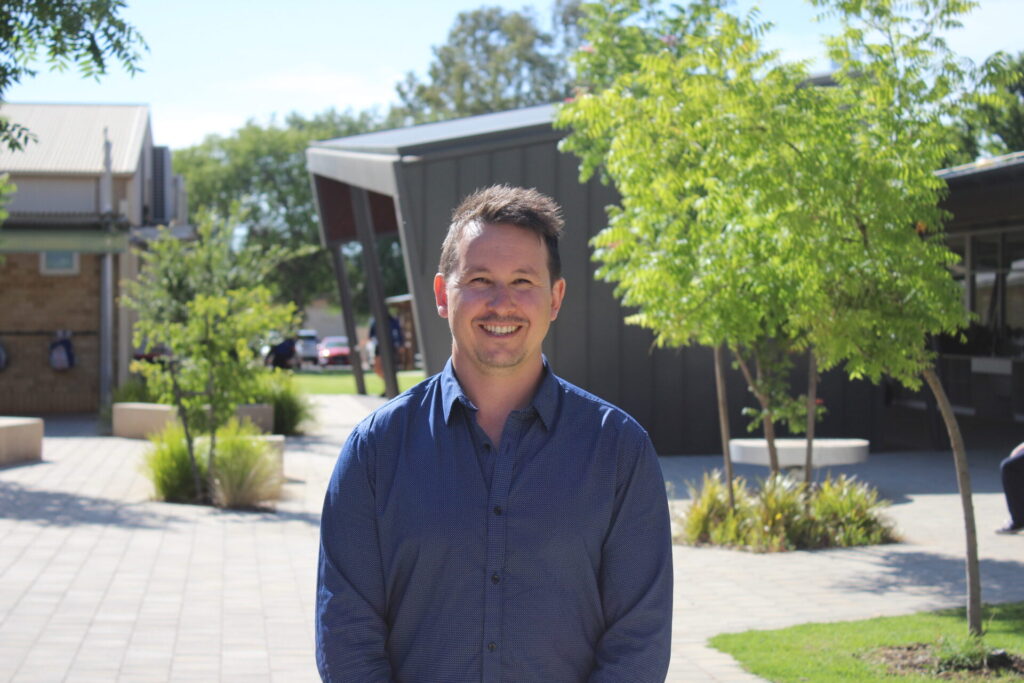The ‘growing, complex web of wellbeing challenges’ facing school students

Schools Plus has developed a number of initiatives aimed at supporting young people’s mental health in rural communities that is producing heartening outcomes.
This story was first published in Inspiring Stories of Giving Vol 2 in August 2024.
Ask anybody in regional, rural and remote towns in Australia whether it’s easy to find mental health support, and you’ll hear the same bitter laugh. Winning an appointment with a specialist can take literally months, and often involves a debilitating level of travel.
The not-for-profit organisation, Schools Plus, has released a report, Every Child, Every Opportunity, that quantifies what that service lag means for the struggling youth of our remote towns, as well as First Nations communities and schools recovering from crises. Crises include floods, fires and the COVID pandemic that put such a hole in the social and educational development of many young people. Analysing six years of data from almost 2,000 schools across Australia, Schools Plus hasn’t just articulated the scale of the issues these schools in disadvantaged areas are facing, it has come up with tangible solutions.
“Schools are telling us that there’s this growing, very complex web of wellbeing challenges that they’re facing among their students,” Schools Plus CEO Sherrill Nixon said. “They’re talking about rising anxiety, they’re talking about increasing levels of trauma backgrounds. These kids are coming to school with low resilience, and that’s playing out in the form of absenteeism, behavioural issues in the classroom, an inability to form relationships, and kids not having built their social-emotional skills sufficiently. Because well-being is so linked to learning, it means that academic results are also at risk as a result.”
Schools Plus, which is entirely funded by philanthropy, has charted that the focus of many schools has shifted dramatically, putting the wellbeing of students even ahead of academic results, because of the interlinked nature of the two. “In 2018, only 31% of schools seeking our support identified wellbeing as the highest priority. In our most recent application round, it was 48%,” Sherrill said.
The most exciting aspect of the Every Child, Every Opportunity report is when it talks about solutions, in three parts. The solutions were found through years of partnering with schools in some of the country’s most vulnerable communities, trialling different and bespoke approaches to boost wellbeing and identifying what works.
“The first solution is the idea of having a wellbeing hub where schools are able to bring a GP, psychologist or allied health professionals, such as speech or occupational therapists, on to the school campus, so that kids are able to have quick and easy access to those health services,” Sherrill said. “This has already been successful where we’ve implemented it. One of the starting points of this problem is that there’s not easy access to care. Kids might be waiting 12 or 18 months to see a professional and then there’s often the distance and hours needed to get to that appointment.
“Another issue is sometimes that there’s a lack of trust in those sorts of professions, whereas schools are seen as being safe and trusted places, so if the schools are able to provide those services on site, then parents and students are much more likely to access them,” she said.
Secondly, improved professional development of teachers to have better trauma-informed practices emerged as a key need, both among the teachers and in 71% of wellbeing-focused support applications. “All educators, including trainee teachers, should have access to timely, evidence-based professional development to help them create safe and supportive learning environments, identify student needs and implement strategies to support student engagement in learning,” Schools Plus advocated.
The third suggested action was to create the new role of Wellbeing Navigators in disadvantaged schools, allowing trained professionals to coordinate effective identification, prevention and early intervention wellbeing and mental health strategies for kids showing signs of stress.
At Berri Regional Secondary College, Principal Clinton Ridgway is already working towards the Schools Plus dream. His school has established a wellbeing hub, including a Doctors on Campus initiative, where a psychologist travels from Adelaide once a week, among other inhouse professional help. Assistant Principal Donna Safralidis is the wellbeing leader, with the responsibility to lead student support across the school community.
“It was about shifting our mindset to wellbeing being just as important as teaching and learning, so instead of just focusing on academic excellence, we focused in on wellbeing engagement as well. We moved a lot of our internal improvement work with that as the focus and the vision moving forward,” Clinton said.

Berri Regional students were so stressed by all the usual anxieties of today’s student life, such as social media, online gaming, family tensions and a troubled world, plus flood impacts across the Riverland region and the pandemic that their engagement in school and learning was affecting their attendance. Establishing the wellbeing hub, with a team of youth workers and other professionals dedicated to their mental care, was a way to nurse them back into social habits and education.
“There’s a lot of careful strategy around it,” Clinton said. “It is not intended as a drop-in centre. It’s students going there seeking support or making appointments to get support. It can be as much as seeking a doctor or a psychologist, to having case management with the youth worker, to getting support for the fact they don’t have lunch or a uniform for the day.”
“We’re seeing the benefits, three years in,” he said. “For us, it was more about not just having wellbeing as an add-on program. This is more of a holistic overview, taking every individual on their merits and seeing what was wrong, what’s happening in their lives and how do we support them.
“Of our 700 students, 400 in the last year accessed our wellbeing hub in some capacity, including some of those high academic students you wouldn’t immediately think are suffering from poor mental health,” he said.
Schools Plus, which was founded following a recommendation in the first Gonski Review into education, hopes more support from government and the philanthropic community will enable many more schools to follow Berri’s lead in the wake of their report’s release.